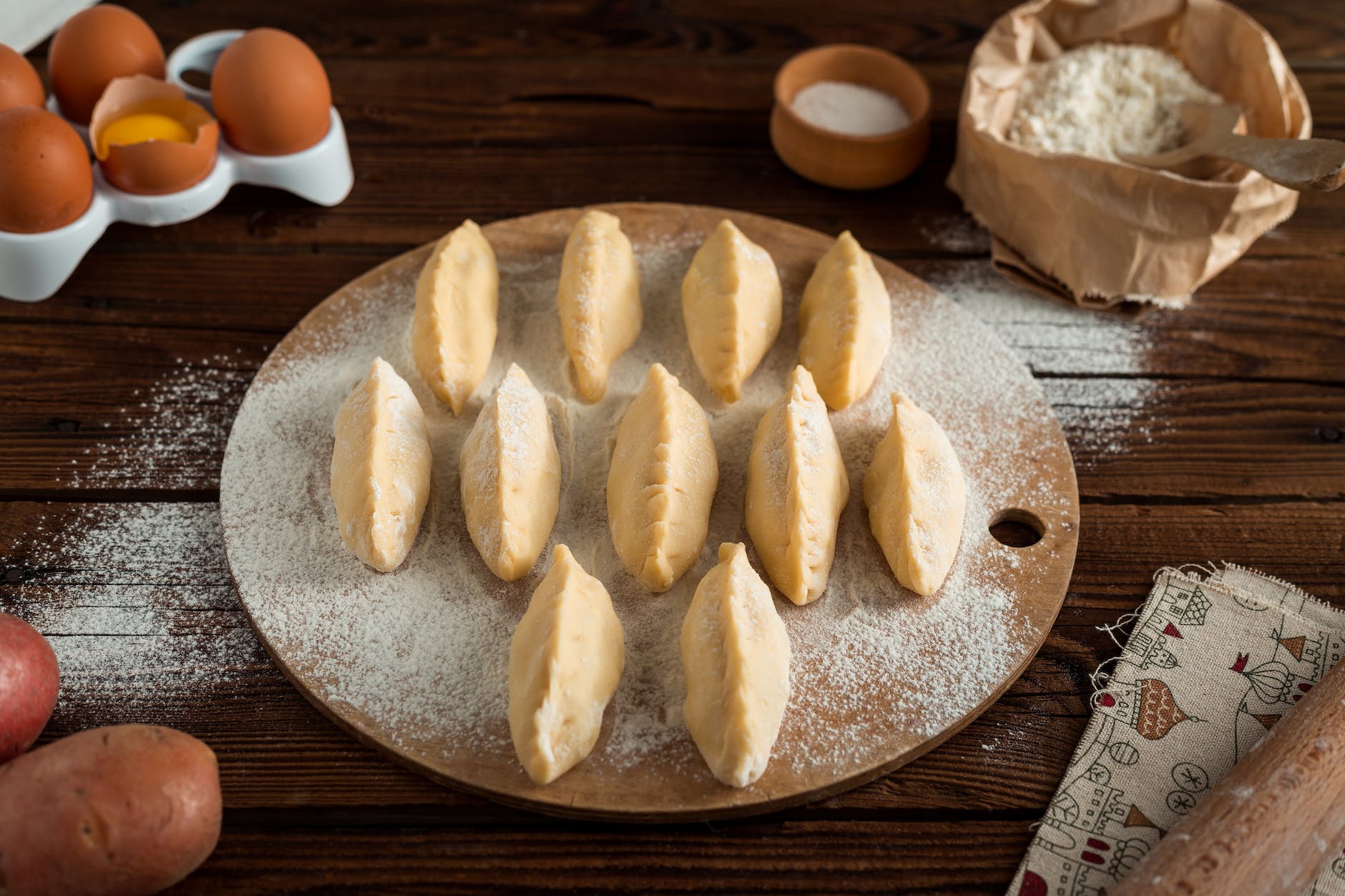Introduction: The Importance of Baking Ingredients and Substitutions
Baking is a science, and like any science, it requires precise measurements and the right ingredients to achieve the desired results. Whether you’re making cookies, cakes, or bread, the ingredients you use can make all the difference in the final product. But what happens when you don’t have all the ingredients you need? That’s where substitutions come in.
Substitutions can be a lifesaver when you’re in a pinch, but they can also be a disaster if you don’t know what you’re doing. In this article, we’ll explore the essential baking ingredients you need to know, as well as some common substitutions and alternative flours. We’ll also discuss the role of fats in baking and how to use them to your advantage.
Essential Baking Ingredients: Flour, Sugar, Eggs, and More
Flour is the backbone of most baked goods, providing structure and texture. All-purpose flour is the most versatile, but there are many other types of flour to choose from, including bread flour, cake flour, and pastry flour. Each type of flour has a different protein content, which affects the final product. For example, bread flour has a higher protein content than all-purpose flour, which makes it ideal for bread and other yeast-based recipes.
Sugar is another essential ingredient in baking, providing sweetness and helping to tenderize the dough or batter. Granulated sugar is the most common type of sugar used in baking, but there are many other types to choose from, including brown sugar, powdered sugar, and honey. Each type of sugar has a different flavor and texture, which can affect the final product.
Eggs are another important ingredient in baking, providing structure, moisture, and richness. They also act as a leavening agent in some recipes, helping the dough or batter rise. If you don’t have eggs on hand, there are several substitutions you can use, including applesauce, mashed bananas, or yogurt.
Other essential baking ingredients include baking powder, baking soda, salt, and vanilla extract. Baking powder and baking soda are leavening agents that help the dough or batter rise. Salt enhances the flavor of the baked goods, while vanilla extract adds flavor and aroma.
Substituting Ingredients: How to Make the Most of What You Have
Substitutions can be a lifesaver when you’re missing an ingredient, but they can also be a disaster if you don’t know what you’re doing. Here are some common substitutions you can use in baking:
– Butter: You can substitute margarine or shortening for butter in most recipes, but keep in mind that the flavor and texture may be slightly different.
– Milk: You can substitute almond milk, soy milk, or coconut milk for regular milk in most recipes.
– Eggs: You can substitute applesauce, mashed bananas, or yogurt for eggs in most recipes, but keep in mind that the texture may be slightly different.
– Sugar: You can substitute honey, maple syrup, or agave nectar for sugar in most recipes, but keep in mind that the flavor and texture may be slightly different.
When substituting ingredients, it’s important to keep in mind that the final product may be slightly different than the original recipe. It’s also important to measure carefully and make adjustments as needed.
Baking with Alternative Flours: Gluten-Free and Beyond
If you’re looking to bake with alternative flours, there are many options to choose from. Gluten-free flours, such as almond flour, coconut flour, and rice flour, are becoming increasingly popular. These flours are ideal for people with celiac disease or gluten intolerance, but they can also be used by anyone looking to add variety to their baking.
Alternative flours can be used in a variety of recipes, including cakes, cookies, and bread. However, it’s important to keep in mind that these flours have different properties than traditional wheat flour, so you may need to make adjustments to the recipe. For example, almond flour is denser than wheat flour, so you may need to add more leavening agents to help the dough or batter rise.
The Role of Fats in Baking: Butter, Oil, and Shortening
Fats play an important role in baking, providing flavor, moisture, and texture. Butter is the most common fat used in baking, but oil and shortening are also popular choices. Each type of fat has a different flavor and texture, which can affect the final product.
Butter adds richness and flavor to baked goods, but it can also make them dense and heavy if too much is used. Oil, on the other hand, adds moisture and lightness to baked goods, but it can also make them greasy if too much is used. Shortening is a solid fat that is often used in pie crusts and other baked goods that require a flaky texture.
When using fats in baking, it’s important to measure carefully and use the right type of fat for the recipe. It’s also important to keep in mind that the final product may be slightly different depending on the type of fat used.
Conclusion: Mastering Baking Ingredients and Substitutions for Delicious Results
Baking is a science, and mastering the right ingredients and substitutions can make all the difference in the final product. Whether you’re making cookies, cakes, or bread, it’s important to measure carefully and use the right ingredients for the recipe. If you don’t have all the ingredients you need, substitutions can be a lifesaver, but it’s important to make adjustments as needed.
Alternative flours and fats can also add variety and flavor to your baking, but it’s important to keep in mind that they have different properties than traditional ingredients. With a little practice and experimentation, you can master the art of baking and create delicious treats for yourself and your loved ones.
